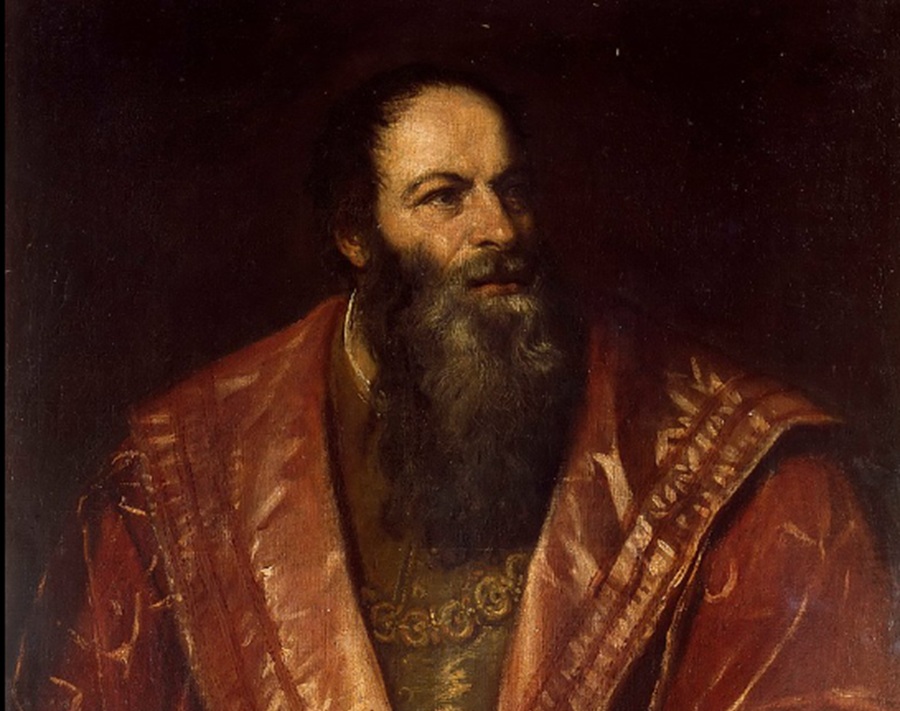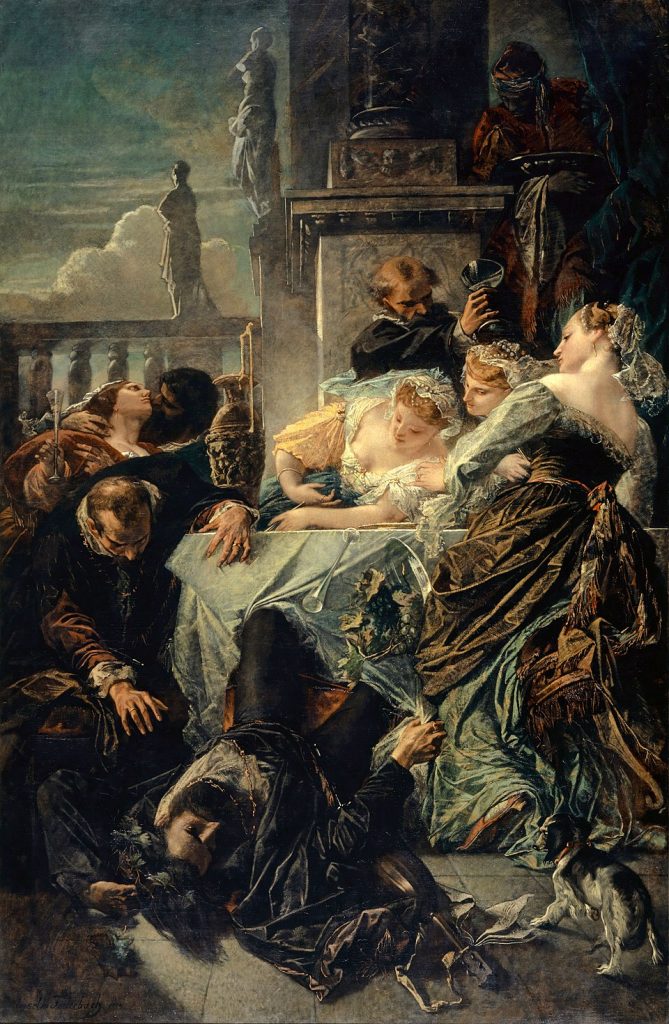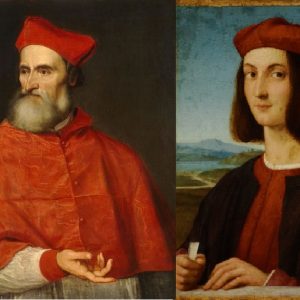Pietro Aretino, born in Arezzo on 20 April 1492, became one of the most provocative writers of the Italian Renaissance.
Though the son of a shoemaker, he claimed noble ancestry and styled himself ‘Aretino’ after his birthplace. He received little formal education but quickly showed a sharp tongue and a flair for biting satire.
Pietro Aretino in Rome
By his early twenties, Aretino had moved to Rome, where he gained favour with wealthy patrons, including banker Agostino Chigi. His early fame grew with a satirical pamphlet mocking the death of Pope Leo X’s pet elephant, Hanno, through which he also mocked Rome’s elite.
Aretino’s biting satires, including support for Giulio de’ Medici’s papal bid, earned him both acclaim and enemies. De’ Medici succeeded as Pope Clement VII.
He scandalised Rome in 1524 with the Sonetti Lussuriosi, a series of erotic poems paired with risqué engravings by Giulio Romano. The work enraged the Vatican and forced Aretino to flee the city for his safety.
Settled in Venice
Aretino travelled through northern Italy before settling in Venice in 1527, where he remained for most of his life. There, he built a successful literary career, enjoying protection from powerful friends and generous gifts from nervous rulers afraid of the power of his pen.
He formed close ties with leading figures, including painter Titian and sculptor Sansovino, and corresponded with emperors and kings. He received pensions or presents from monarchs such as Francis I of France, Charles V of Spain, and Sultan Suleiman.
Aretino’s works, including the comedies La Cortigiana and Il Marescalco, and the tragedy Orazia, show his talent for exposing societal hypocrisies. His six volumes of letters, published from 1537, reveal his cynicism and earned him the title ‘scourge of princes’.
Death from laughing
Aretino died in Venice on 21 October 1556, allegedly from laughing too hard at a joke during dinner.
He was buried in the Church of San Luca, where his epitaph reportedly read: “Here lies Aretino, the Tuscan poet, who spoke evil of everyone except Christ, saying: ‘I do not know him’.”






